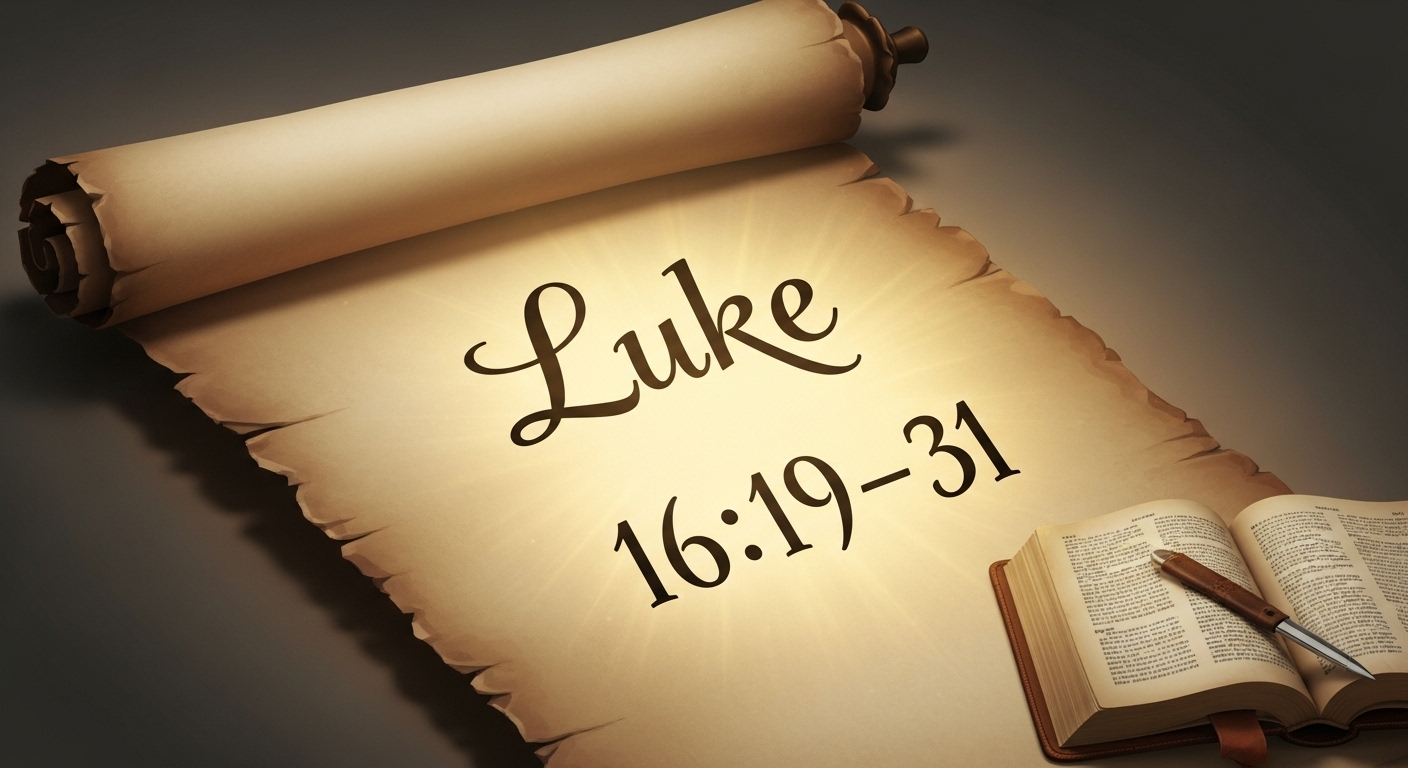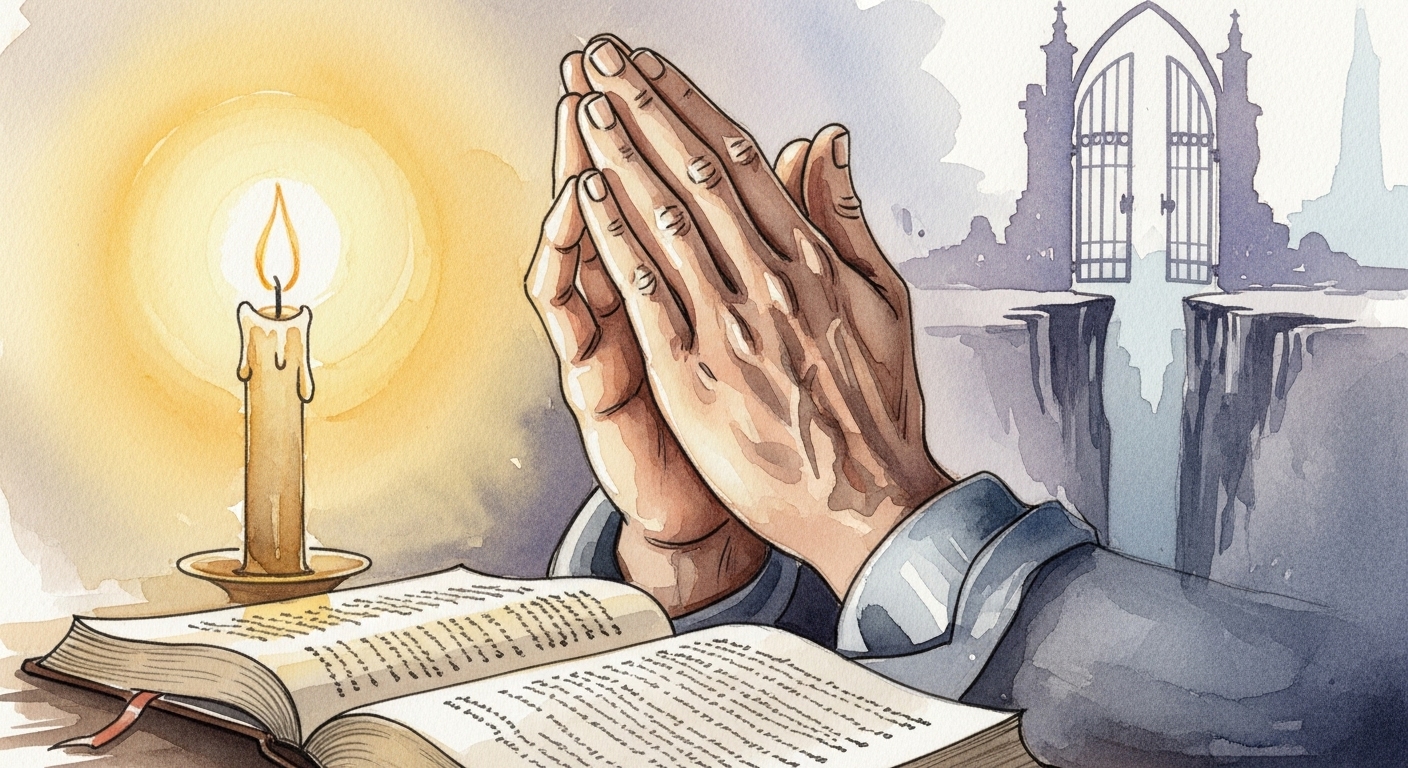The Rich Man And Lazarus: A Glimpse Into The Afterlife (Luke 16:19-31 – The Parable Of The Rich Man And Lazarus)

Introduction
Have you ever noticed how a short story can stick with you, tugging at your heart weeks later? The Parable of the Rich Man and Lazarus does that. It’s one of Jesus’ most challenging and vivid parables—full of contrast, sorrow, and a clear moral bite. As you read it, you might feel uncomfortable, convicted, or deeply moved. That reaction matters because this story isn’t just a theological puzzle; it’s a mirror for how you live now and what you value.
You’re about to walk through Luke 16:19–31 in a straightforward, practical way. You’ll see the scene Jesus paints, understand the spiritual truth He points to, and get real steps for applying that truth in relationships, generosity, and how you think about eternity. This matters because the choices you make today—how you treat the vulnerable, how you use your resources, and how you listen to God’s Word—shape both your present peace and your eternal posture.
The Bible Foundation
The Passage (Luke 16:19–31)
Read the passage slowly and let the images sink in: Luke 16:19–31 (NIV)

Luke 16:19-31 (NIV): 19 “There was a rich man who was dressed in purple and fine linen and lived in luxury every day.
20 At his gate was laid a beggar named Lazarus, covered with sores 21 and longing to eat what fell from the rich man’s table. Even the dogs came and licked his sores.
22 The time came when the beggar died, and the angels carried him to Abraham’s side. The rich man also died and was buried.
23 In Hades, where he was in torment, he looked up and saw Abraham far away, with Lazarus by his side.
24 So he called to him, ‘Father Abraham, have pity on me and send Lazarus to dip the tip of his finger in water and cool my tongue, because I am in agony in this fire.’
25 “But Abraham replied, ‘Son, remember that in your lifetime you received your good things, while Lazarus received bad things, but now he is comforted here and you are in agony.
26 And besides all this, between us and you a great chasm has been set in place, so that those who want to go from here to you cannot, nor can anyone cross over from there to us.’
27 “He answered, ‘Then I beg you, father, send Lazarus to my family,
28 for I have five brothers. Let him warn them so that they will not also come to this place of torment.’
29 “Abraham replied, ‘They have Moses and the Prophets; let them listen to them.’
30 “‘No, father Abraham,’ he said, ‘but if someone from the dead goes to them, they will repent.’
31 “He said to him, ‘If they do not listen to Moses and the Prophets, they will not be convinced even if someone rises from the dead.’”
This is a stark, emotional story. Jesus doesn’t sugarcoat the gap between the haves and have-nots, nor does He reduce the afterlife to abstract doctrine. Instead, He gives a narrative that’s meant to prompt moral reflection and spiritual urgency.
Related Post: Preparing For Christ’s Return: Lessons From The Parable Of The Ten Virgins – Matthew 25:13
Understanding the Core Truth
The heart of the Parable of the Rich Man and Lazarus is simple: how you use what you have matters eternally. Jesus paints a contrast between two outcomes—comfort in life vs. comfort after death—and ties those outcomes to responses to suffering and exposure to God’s revelation. The rich man enjoyed wealth and ignored the beggar at his gate; Lazarus endured hardship but was ultimately embraced by Abraham’s side.
Put plainly: God notices both your compassion and your indifference. The core message teaches that ignoring suffering and failing to act in mercy can have eternal consequences—not necessarily in a transactional way, but as evidence of a heart turned inward rather than Godward. Jesus points you to the spiritual reality that the way you treat the least among you reveals where your heart is anchored.
Going Deeper — The Hidden Meaning

The parable invites you to examine motives, not just actions. On the surface, it’s about wealth and hunger; underneath, it’s about spiritual blindness. The rich man isn’t condemned for being wealthy; he’s condemned for his hardness of heart—his inability to see the beggar as image-bearer of God. The “great chasm” in the afterlife symbolizes the irreversible consequences of choices formed by a life’s pattern of indifference.
Think about the story of the Good Samaritan (Luke 10): compassion moves the Samaritan to act even when it’s inconvenient. In contrast, the rich man’s indifference is habitual. The hidden lesson is that your heart’s posture now—toward God, scripture, and suffering people—shapes your eternal perspective. The parable warns you that familiar religious forms (the rich man’s life may have included temple attendance or social standing) don’t substitute for a life marked by compassion and obedience to God’s commands.
Modern Connection — Relevance Today

This parable is not ancient guilt-tripping; it’s a mirror for modern life. You live in a world of visible need: homelessness on city corners, refugees at borders, coworkers under stress, and social systems that produce inequality. The temptation to “look away” is real—and socially reinforced. Whether you’re navigating career success, family obligations, or social media’s filtered lives, the rich man’s story should make you pause.
You can use your time, money, influence, and voice to help those in need. You can also ignore them and still feel comfortable. The parable’s message nudges you toward consistent compassion: small acts that become a pattern. In practical terms, this might look like supporting charities, volunteering, listening to a neighbor, or advocating for fair policies. Your modern choices are the new clauses of this ancient story.
Practical Application — Living the Message
If you want to live out the lesson of the Parable of the Rich Man and Lazarus, start with small, sustainable steps. First, cultivate awareness: notice the needs around you. Ask God to open your eyes to people like Lazarus at your gate—literal or metaphorical. Second, practice tangible compassion: carry snacks, donate, volunteer at shelters, or mentor someone. Third, align your finances and priorities: budget for generosity so giving becomes regular, not optional.
Make a plan you can keep. For example, commit to one monthly act of service, one intentional conversation with someone different from you, and one regularly scheduled donation. Prayerfully examine your heart about comfort and prestige, and let scripture shape your compassion. Doing this doesn’t earn salvation—grace does—but it demonstrates a heart transformed and responsive to God’s love.
Faith Reflection Box
Pause. What is one person or group you consistently ignore because it’s inconvenient? How could you take a tiny step toward them this week?
Key Takeaways:
- Your choices today reveal the health of your soul and shape your eternal posture.
- Compassion must be habitual; small acts of mercy over time matter.
- Scripture calls you to respond, not just spectate—faith shows itself through love.
- Use your resources intentionally; generosity rewires your priorities toward God.
- Spiritual sight opens when you practice mercy and listen to God’s Word.
Related Post: The Hidden Treasures: Lessons From The Parable Of The Pearl (Matthew 13:45-46 – The Parable Of The Pearl)
Q&A
Q1: Did Jesus intend the Parable of the Rich Man and Lazarus to teach a literal description of the afterlife? Answer: Jesus used vivid imagery to communicate spiritual truths, and the parable operates on both literal and symbolic levels. The “great chasm” and afterlife scenes emphasize the seriousness of final judgment and the permanence of consequences, but Jesus’ main point is moral and pastoral: how you live matters. This story warns against hardened hearts and calls you to compassion. For a broader view on trusting God through uncertainty, see this related article: https://biblestorieshub.com/how-to-pray-for-peace-when-your-mind-feels-overwhelmed/. Also see Luke 16:19-31 for the full passage on Bible Gateway: https://www.biblegateway.com/passage/?search=Luke+16:19-31&version=NIV.
Q2: Does the parable condemn wealth itself? Answer: No, wealth in itself is not condemned. The issue is how wealth is used and what it reveals about your heart. Wealth can enable generosity, hospitality, and justice—or it can foster indifference and self-centered comfort. Jesus targets the rich man’s lack of mercy, not his garments or table. If you have resources, consider them stewardship—opportunities to bless others. Let actions of compassion be the evidence of faith; the Bible often calls you to share generously and care for the vulnerable (see James and Proverbs for practical wisdom).
Q3: What does Lazarus’ place “by Abraham’s side” mean for us? Answer: Being “by Abraham’s side” (sometimes rendered “Abraham’s bosom”) symbolizes intimate fellowship with the patriarchs and, more importantly, with God’s covenantal blessing. For you, this means the promise of comfort and vindication for those who suffer now but trust in God’s justice. It’s a picture of rest and acceptance, not merely a social reward. The parable reassures you that God sees and will ultimately comfort those who endure hardship, even if earthly vindication is delayed. Luke 16:19–31 (NIV)
Q4: How should this parable shape my daily decisions and conversations? Answer: Let the parable shape your rhythms of attention and action. When you encounter a need, ask: “Can I help? What small step can I take?” Prioritize relationships over image, practice generosity, and speak truth with love. When debating public policy or personal priorities, use the parable as an ethical lens: who benefits, who is harmed, and am I listening to God’s concern for the vulnerable? In your conversations, bring compassion—not judgment—and let humility guide you. Small, consistent choices will shift your heart toward the posture Jesus advocates.
Conclusion & Reflection
This parable nudges you from comfortable spectatorship into active compassion. Jesus shows you that how you treat the least is a revealing test of your heart’s allegiance. The Rich Man and Lazarus aren’t caricatures; they’re mirrors. You’re invited to respond—to open your eyes, to act, and to let Scripture shape how you use your wealth, time, and influence.
A short prayer you can use: Lord, open my eyes to the Lazaruses at my gate. Give me a heart that sees and hands that act. Teach me generosity that reflects your love, and keep me from the comfort that silences compassion. Amen.

Explore More
For further reading and encouragement, check out these posts:
👉 7 Bible Verses About Faith in Hard Times
👉 Job’s Faith: What We Can Learn From His Trials
👉 How To Trust God When Everything Falls Apart
👉 Why God Allows Suffering – A Biblical Perspective
👉 Faith Over Fear: How To Stand Strong In Uncertain Seasons
👉 How To Encourage Someone Struggling With Their Faith
👉 5 Prayers for Strength When You’re Feeling Weak

📘 Jesus and the Woman Caught in Adultery – Grace and Mercy Over Judgement
A powerful retelling of John 8:1-11. This book brings to life the depth of forgiveness, mercy, and God’s unwavering love.
👉 Check it now on Amazon 🛒💥
🔥 “Every great message deserves a home online.” 🌍💬🏡
Don’t let your calling stay hidden. Start a Christian blog or website using Hostinger — with 99.9% uptime, a free domain, and SSL, your voice can shine for God’s glory anytime, anywhere.
💥 Begin today. 🛒 Try it RISK-FREE! ✅
✝️ “Your body is God’s temple — care for it with purpose.” 💪💖🏛️
Renew your energy and restore balance naturally. Mitolyn helps support a healthy metabolism, giving you the vitality to live out God’s calling with strength and confidence.
🔥 Unlock Your Metabolic Power! ⚡Burn More Calories & Feel Great With Mitolyn. 💪
👉 Start Today. 🚀 Check Price Now. 🛒💰
💰 As a ClickBank & Amazon Affiliate, I earn from qualifying purchases.
📖 Acknowledgment: All Bible verses referenced in this article were accessed via Bible Gateway (or Bible Hub).
🚀 Want to explore more? 👉 Dive into our new post on Why Jesus? and experience the 🔥 life-changing truth of the Gospel!








